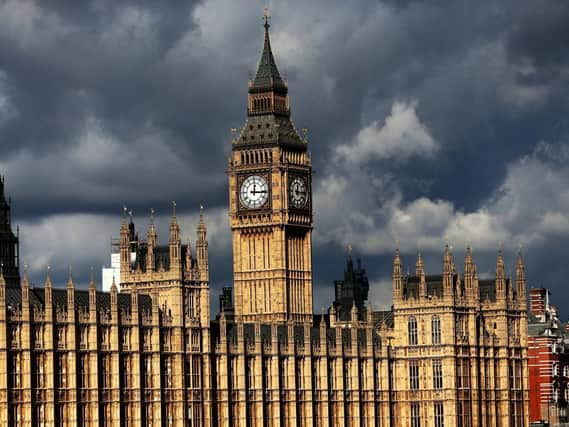Numerous contractors using disguised remuneration schemes have worked for HMRC, according to MPs


The Loan Charge All Party Parliamentary Group (APPG) has written to Jim Harra, the Chief Executive and Permanent Secretary of HM Revenue and Customs, demanding an explanation as to why HMRC used contractors who were involved with schemes which HMRC had condemned as forms of tax avoidance.
The Loan Charge, announced by government in 2016, was designed to tackle tax avoidance schemes where individuals receive income in the form of loans that are not repaid to avoid income tax.
Advertisement
Hide AdAdvertisement
Hide AdThe APPG letter states: " The information disclosed through Freedom of Information (FOI) requests has, at last, revealed what the Loan Charge APPG already knew from our own evidence, but which HMRC previously had not acknowledged: that numerous contractors using ‘disguised remuneration’ (DR) schemes have worked for HMRC and wholly owned subsidiary company, Revenue and Customs Digital Technology Services Limited (RCDTS).
The letter continues: "HMRC have finally acknowledged that they did use contractors using DR schemes, having previously evaded questions on the subject, including from the House of Lords Economic Affairs (EAC) Finance Bill Sub-Committee.
"It is clear that HMRC have only done so as a result of being compelled to disclose the information through FOI requests. HMRC claim it was clear schemes were unacceptable whilst using contractors using these same schemes.
The letter, which has been signed by the co-chairs, Sir Ed Davey, Ruth Cadbury and Sir Mike Penning, added: "Part of the argument for the Loan Charge from HMRC and the Treasury is that the ‘law was clear’ and that HMRC were always clear that these arrangements were unacceptable (and they claim they communicated this effectively, even though the evidence shows they did not).
Advertisement
Hide AdAdvertisement
Hide Ad"Yet the reality is, far from ‘being clear’ that these schemes were unacceptable and ‘did not work’, HMRC itself was using contractors who were using such schemes right up to 2020, even after the loan charge was introduced to Parliament and long after the loan charge legislation had been passed.
"This is more information that shows that the conclusion reached by the Morse Review (staffed by HMRC and Treasury officials and with input from HMRC and the Treasury) that the law was clear from 2010 is unsound."
The letter continues: "Most seriously, however, the information revealed by Freedom of Information exposes the fact that HMRC withheld the discovery that they did have contractors using the schemes they say were always unacceptable (including schemes subject to the Loan Charge). In particular, it is now clear that HMRC (including senior officials) decided to withhold this information from a Parliamentary Select Committee that had challenged HMRC over this matter.
"It is also now established that when the information was discovered, HMRC did not publish this information, nor share it with the House of Lords Economic Affairs Committee, despite the
Advertisement
Hide AdAdvertisement
Hide AdCommittee’s letters to HMRC regarding this matter. As you know, the Committee had written to Ruth Stanier, following her appearance before them on 22nd October 2018 and her failure to answer questions from Committee members."
"There remain serious questions that still need to be answered about this matter, including the question of how HMRC could themselves have got into a position of using contractors using schemes they claim were unacceptable forms of tax avoidance."
Responding to the letter, a HMRC spokesperson said: “HMRC senior leaders did not mislead members of the House of Lords and we have never endorsed or participated in disguised remuneration tax avoidance schemes.
"It is possible for contractors to use disguised remuneration without the participation or knowledge of their engager. Whenever it is or has been discovered that a contractor, providing services to HMRC or RCDTS, is currently using a disguised remuneration scheme, we have acted and will act promptly to terminate the relevant engagements.
Advertisement
Hide AdAdvertisement
Hide Ad“We continue to warn people about the risks of using tax avoidance schemes and our advice remains the same – if something looks too good to be true, it almost certainly is.”
Support The Yorkshire Post and become a subscriber today. Your subscription will help us to continue to bring quality news to the people of Yorkshire. In return, you'll see fewer ads on site, get free access to our app and receive exclusive members-only offers. Click here to subscribe.
Comment Guidelines
National World encourages reader discussion on our stories. User feedback, insights and back-and-forth exchanges add a rich layer of context to reporting. Please review our Community Guidelines before commenting.